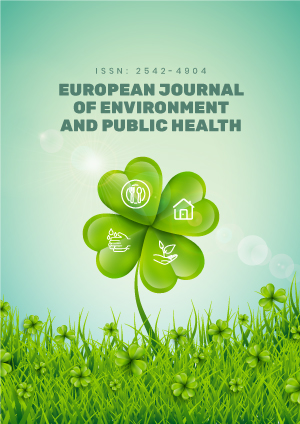Abstract
Objectives: Examine the prevalence of HIV and syphilis and related risk behaviors among female sex workers (FSW) in the Congo.
Methods: A cross-sectional study of 400 FSW was carried in Kinshasa from April to July 2021 using time location sampling approach. A structured questionnaire was used to collect information on sociodemographic characteristics, sexual behavior, mode of HIV transmission, and drug use. Rapid tests for HIV and syphilis were administered. Logistic regression identified the factors associated with the risk of developing HIV infection.
Results: The prevalence of HIV and syphilis was 7.2% (n=29) and 11.5% (n= 46), respectively. The mean age of the participants was 21 years. Over half of them (53.2%) had the first intercourse between 7 and 15 years of age; 62.5% initiated commercial sex between 16 and 20 years of age. The average number of paying clients the week preceding the survey was 17.6 with SD±12.0. The average number of non-paying clients during the same period was 5.5 with SD±2.0. Most of the participants (95.8%) reported using condom during their last sexual encounter with a paying client compared to 29% with a non-paying client.
Multiple logistic regression analysis showed that being diagnosed with syphilis [OR: 7.34; 95%; CI: 3.12, 17.29] and ever been married [2.28; 95%; CI: 0.96, 5.41] were associated with HIV infection. Consumption of a locally brewed alcohol (lotoko) [OR: 2.23; 95% CI: 0.91, 5.45] was marginally associated with the risk of HIV infection.
Conclusion: The high prevalence of HIV and syphilis in this marginalized group is a matter of great public health concern. More effective interventions are needed to address the vulnerability to HIV among FS.
License
This is an open access article distributed under the Creative Commons Attribution License which permits unrestricted use, distribution, and reproduction in any medium, provided the original work is properly cited.
Article Type: Research Article
EUR J ENV PUBLIC HLT, Volume 6, Issue 2, 2022, Article No: em0114
https://doi.org/10.21601/ejeph/12179
Publication date: 25 Jun 2022
Article Views: 3466
Article Downloads: 2006
Open Access References How to cite this article
 Full Text (PDF)
Full Text (PDF)